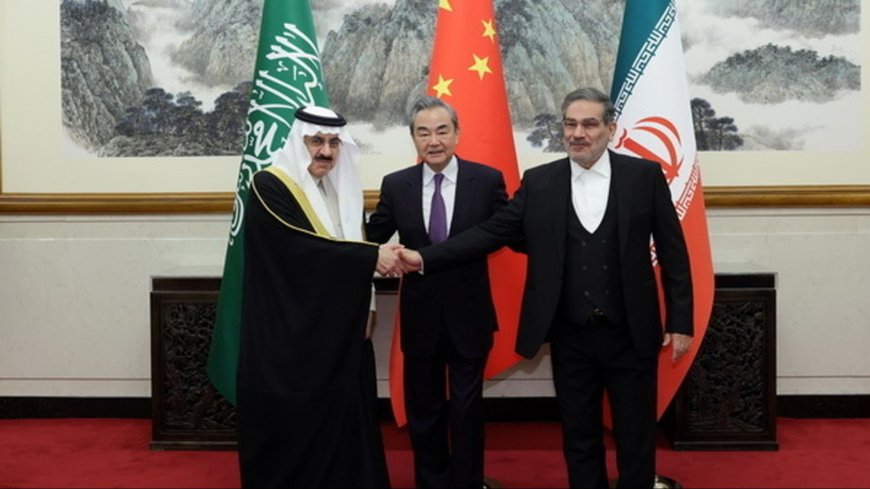Iran-Saudi Détente: A Regional Transformation?

By: M. Sharifi
The diplomatic relations between Iran and Saudi Arabia have been characterised by fluctuations, and the recent agreement reached on March 10 in China marks a new phase of de-escalation between the two countries after seven years of strained relations. As per the deal, Iran and Saudi Arabia have declared their intention to recommence their diplomatic ties and establish embassies within a span of two months.
According to analysts, de-escalation between Saudi Arabia, the world's largest oil exporter, and Iran, a country whose nuclear activities are frowned upon by Western governments, has the potential to enhance relations in a region that has been plagued by turmoil for several decades.
The Saudi-Iran détente has been favourably received by numerous nations within the vicinity, such as the United Arab Emirates, Oman, Qatar, Iraq, Egypt, Bahrain, and Turkey. Similar optimism has been expressed by Hezbollah, Ansarullah, and the Palestinian Authority on the Beijing accord. Al Jazeera reported that the chief negotiator of Iran-aligned Houthis in Yemen stressed the necessity of diplomatic relations among Middle Eastern countries. According to Mohammed Abdul-Salam, it is imperative to regain normal relations among the Islamic nations in order to restore the security of the Islamic Ummah, which has been compromised by foreign interventions. The Secretary General of Hezbollah in Lebanon, Sayyed Hassan Nasrallah, expressed that the resumption of diplomatic ties between Iran and Saudi Arabia is a positive development.
Initially, Saudi Arabia anticipated a swift victory in Yemen within a six-month duration; however, it has since become mired in a protracted conflict that has been ongoing for eight years. Also, Mohammed bin Salman, Saudi Arabia's Crown Prince and its de facto ruler's desire to resolve the conflict is driven by his hopes to realize his ambitious 2030 vision. Since the signing of a diplomatic agreement between Saudi Arabia and Iran in Beijing on March 10, the attention of the international community has been directed towards Yemen, where two rival nations, Saudi Arabia and Iran, have been engaged in an indirect conflict since 2015.
There is a prevailing hope among observers that the establishment of cordial relations between Iran and Saudi Arabia will lead to significant advancements in the settlement of the ongoing civil war in Yemen. The remarks made by Iran's permanent representative to the United Nations imply that the agreement between Iran and Saudi Arabia can facilitate the establishment of a ceasefire in Yemen.
The potential normalisation of diplomatic relations between Iran and Saudi Arabia is in direct conflict with Israel's strategic objective of deterring Iran's regional influence. Naftali Bennett, the former Prime Minister of the Zionist regime, expressed concerns regarding the impact of the recent Tehran-Riyadh rapprochement on the emergence of a regional coalition against Iran. The Netanyahu administration's fiasco in establishing an anti-Iran front in the Middle East can be attributed to Netanyahu's lack of geopolitical grasp of Middle East dynamics, Israel's economic instability, and worsening domestic strife. The international community and countries in the Middle East perceive Israel as being fragmented and are unwilling to engage with a government that is gradually becoming a failing state and is on the verge of civil war.













































